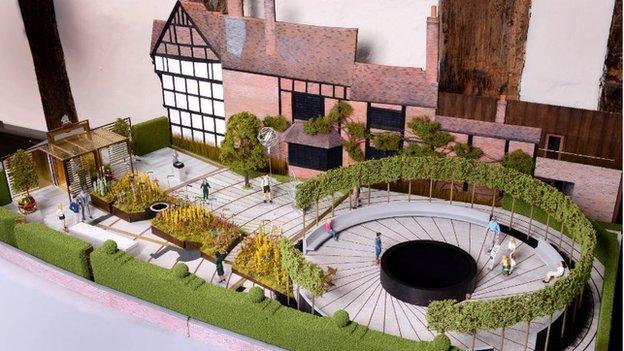Shakespeare's grave scanned in 400th anniversary
- Published
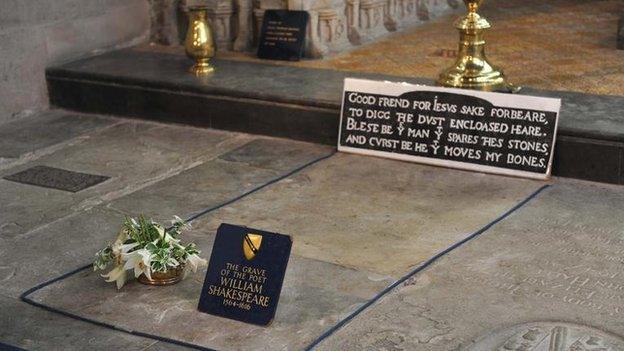
Shakespeare's grave in Stratford - with a warning against anyone who "moves my bones"
A radar survey into William Shakespeare's grave and an excavation of the playwright's house are among research projects marking the 400th anniversary of his death.
Shakespeare's grave in Holy Trinity Church in Stratford upon Avon has never been excavated, but a scan has been carried out to search below ground.
This allows an investigation without physically disturbing the site.
The findings are expected to be revealed in the next few weeks.
There are believed to have been discoveries in the grave, in a church where five members of the Shakespeare family are buried.
There has been speculation about a possible family vault under the stones - and questions about whether such a ground-penetrating scan would show other items buried with Shakespeare.
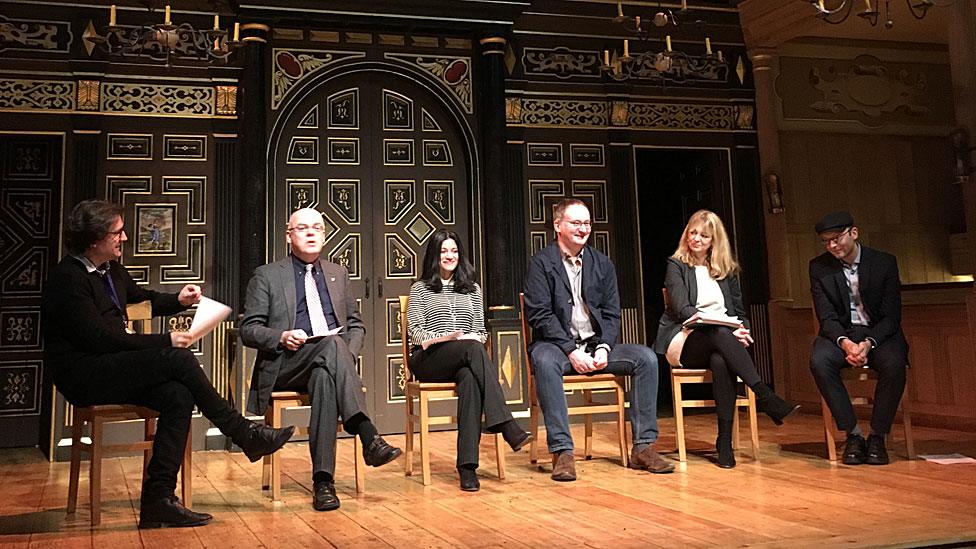
Shakespeare experts gathered at the Globe to reveal plans for the summer's scholarly Shakespearean "Olympics"
The grave, where the playwright was buried in 1616, carries the warning: "Good friend, for Jesus' sake forebeare, To digg the dust enclosed heare; Bleste be the man that spares thes stones, And curst be he that moves my bones."
The investigation into the grave was revealed ahead of this summer's World Shakespeare Congress.
The congress, likened to an Olympics for Shakespearean scholarship, is held every five years.
This year's event will be split between Stratford upon Avon and London.
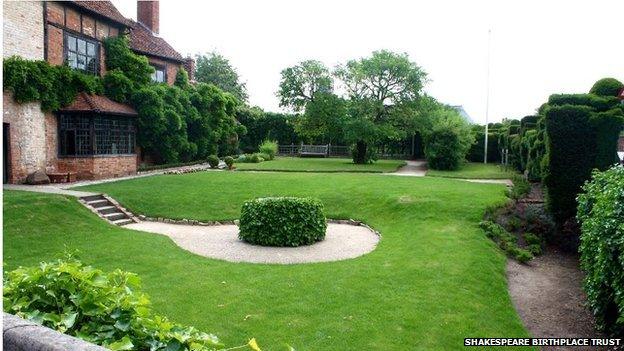
The gardens at New Place will be restored as part of a project excavating Shakespeare's final home
Michael Dobson, professor of Shakespeare studies at the University of Birmingham's Shakespeare Institute, said previous anniversaries had been "dogged" by rivalries between the playwrights's birthplace and workplace.
The World Shakespeare Congress, external, beginning in July, will bring together a thousand Shakespearean specialists, researchers and academics.
Plans for the congress were presented at Shakespeare's Globe, one of the venues, in an event co-hosted with groups including the Royal Shakespeare Company, the University of Birmingham, King's College London and the Shakespeare Birthplace Trust.
As well as a range of performances, debates, seminars and conferences at the congress, this anniversary year will see new findings from research and archaeology.
There will also be findings from investigations in Shakespeare's last home, New Place in Stratford.
The house, due to be reopened to the public in July, has been excavated in a dig commissioned by the Shakespeare Birthplace Trust.
Paul Edmondson, the trust's head of research, says the excavation has uncovered a much clearer picture of Shakespeare's home life, and there will be findings about his cold store - the equivalent of a 17th Century fridge - and the family's oven.
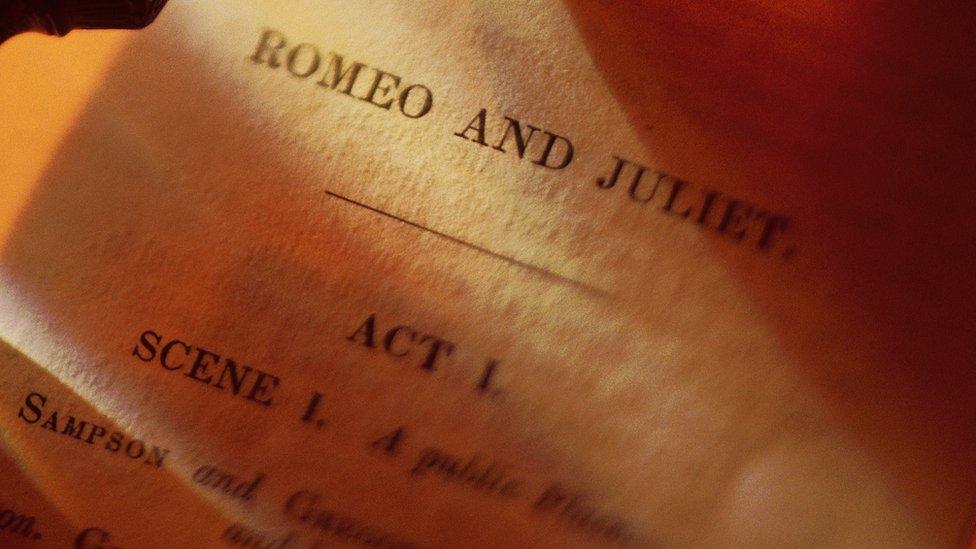
The theatre in London where Romeo and Juliet was performed is going to be excavated this spring
He says it gives a stronger impression of someone who spent much more of his life in Stratford than might once have been claimed - and Dr Edmondson suggests that if the playwright's commercial life was in London, his place for writing might have been his home in Stratford.
Dr Edmondson says the fascination with Shakespeare's life shows no sign of fading and for researchers "his life will never be complete".
There are also excavations this year in London, which would reveal more about Elizabethan theatre, said Gordon McMullan, director of the London Shakespeare Centre, King's College London.
In the spring, Museum of London Archaeology will carry out the biggest dig so far on the site of the Curtain theatre in Shoreditch.
Until now there have only been exploratory excavations, and this dig could reveal how much of the theatre, where Shakespeare's plays were performed, has survived.
Farah Karim-Cooper, head of higher education and research at Shakespeare's Globe, said it could have been where Romeo and Juliet was first performed.
Prof McMullan said the forthcoming anniversary would emphasise the idea of Shakespeare as a global figure - while a century ago, there were still strong associations of Shakespeare as a national poet.
Peter Holbrook, chairman of the International Shakespeare Association, welcomed the idea of staging the congress in both Stratford and London.
"It is entirely fitting then, in this quatercentenary year, to bring Shakespeare home," he said.
- Published22 January 2015
